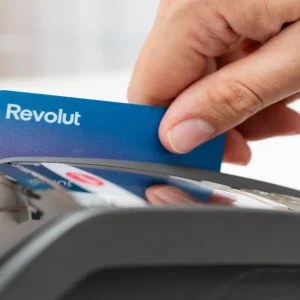The AT&T Co bid for NCR Corp has turned the spotlight back onto that thorny issue, shareholder rights. In theory the board and management of a public company work solely for the benefit of the shareholders, but it is putting an intolerable burden on honourable men that sincerely believe that a proposed acquisition will be disastrous for all that they have built up within the company to remind them that they are obligated to recommend the bid. In a piece in the Wall Street Journal, a money manager, Steven Cohen, wrote a trenchant piece headlined Hey NCR – we’re the shareholders, you work for us, bemoaning the fact that a whole raft of state and federal regulations and corporate manipulations were now in place to frustrate hostile bids and concluding that shareholders, at least, ought to be asking searching questions about a system that allows Mr Exley to simply declare that NCR is not for sale. Those that regard rampant capitalism, red in tooth and claw, as an unmitigated evil, will cite the AT&T-NCR case as a prime example of the damage that the system regularly causes. Those that are convinced that the capitalist system is the least evil and most beneficial of many evil systems will nevertheless feel that there are instances where the national interest and the interests of many thousands of directly affected individuals are set at nought by capitalism in action. The case for the NCR defence is that there are very few really successful and well run computer manufacturing companies left outside Japan, that NCR is one of that few, and that AT&T, with the best will in the world, will somehow manage to wreck what is in process of being created, and that therefore the acquisition would be a Bad Thing. Where does that leave the shareholders, nominal owners of the business, who can be sure that if the AT&T bid fails, the 88% premium on the share price before its interest became known will vanish like snow in summer, and that without jeopardising its future, there is no way that NCR can immediately realise for shareholders what it believes is the fundamental value of what is being built up. But doesn’t Mr Cohen protest too much? Should the desires of shareholders that are not simply diligent but sheerly greedy really be satisfied at the expense of every other interest? All companies are not the same. Some are run well, some badly. Some are lucky, some unfortunate. Each has its own corporate ethos. NCR has for years made it clear that it is run as far the board can contrive in the interests of what it regards as all its stakeholders – shareholders, employees present and past, customers. NCR has made no secret of this philosophy – it has stressed it with almost every corporate public pronouncement. That being that case, wouldn’t it be fair to describe anyone that bought NCR shares purely in the hope of a big capital gain from a hostile takeover as a little stupid, a little negligent in not researching the company and its ethos more carefully? It has been clear for years that if NCR received an unwelcome bid, it would do all it could to frustrate it. And anyway, Mr Cohen, an 88% premium on the price a couple of months ago is a pretty neat windfall. For about a week before Christmas, the shares were trading at above $90 a share. If you think that NCR’s board is so delinquent, why didn’t you simply sell your NCR shares in the market and profit the profit? Even at the height of the 1980s feeding frenzy, one occasionally heard the odd smug trader happily patting his wallet over his latest coup and muttering anything more would be greedy.






